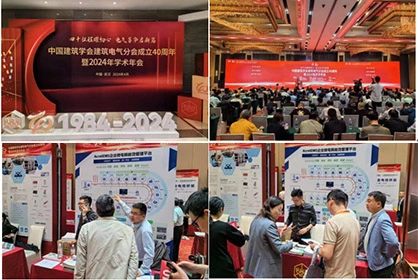In the dynamic landscape of industrial operations, maintaining optimal conditions within power distribution systems is paramount. Bus bar temperature sensors emerge as critical components, playing a pivotal role in ensuring the efficient and safe functioning of electrical systems. This passage explores the myriad benefits and the overarching importance of bus bar temperature sensors in diverse industrial applications.
Ensuring Equipment Longevity and Reliability
One of the primary advantages of employing bus bar temperature sensors is their contribution to the longevity and reliability of electrical equipment. Bus bars, which carry and distribute electrical power within industrial settings, are susceptible to overheating due to various factors such as high current loads or environmental conditions. Temperature sensors continuously monitor the bus bar temperature, providing real-time data to prevent overheating. This proactive approach helps in avoiding equipment failures, minimizing downtime, and extending the lifespan of critical industrial assets.
Preventing Catastrophic Failures and Downtime
The prevention of catastrophic failures is a critical aspect of industrial operations, and bus bar temperature sensor serve as invaluable tools in this regard. By constantly monitoring the temperature levels of bus bars, these sensors can detect anomalies and trigger alarms or automatic shutdowns if temperatures surpass safe thresholds. This proactive response prevents potential catastrophic failures, mitigates the risk of electrical fires, and significantly reduces downtime associated with unscheduled maintenance and repairs.
Enhancing Operational Safety and Compliance
Safety is a top priority in industrial environments, and bus bar temperature sensors contribute significantly to enhancing operational safety. By continuously monitoring temperature levels, these sensors provide an early warning system for potential issues, allowing operators to take preventive measures before safety is compromised. Additionally, the implementation of temperature monitoring aligns with regulatory compliance standards, ensuring that industrial facilities adhere to safety protocols and maintain a secure working environment for personnel.
Optimizing Energy Efficiency
Bus bar temperature sensors contribute to the optimization of energy efficiency within industrial facilities. Overheating in electrical systems can lead to energy losses and decreased overall efficiency. By promptly identifying temperature fluctuations, these sensors enable operators to address issues such as overloading or inadequate cooling systems, thereby optimizing energy consumption. This proactive approach aligns with the broader industry goal of sustainability and energy efficiency, promoting responsible resource utilization.
Customizable Solutions for Diverse Applications
The importance of bus bar temperature sensors is accentuated by their adaptability to diverse industrial applications. These sensors come in various types and designs, catering to different bus bar configurations, voltage levels, and environmental conditions. Whether in manufacturing plants, power distribution centers, or critical infrastructure facilities, bus bar temperature sensors offer customizable solutions that can be tailored to specific industrial requirements. This versatility ensures that industries of all types and sizes can benefit from the enhanced monitoring and safety features provided by these sensors.
In the era of Industry 4.0, real-time monitoring and remote accessibility are pivotal for efficient industrial operations. Bus bar temperature sensors are designed to provide real-time data, enabling operators to monitor temperature levels at any given moment. Additionally, many modern sensors offer remote accessibility, allowing personnel to monitor and analyze data from a centralized location. This feature not only enhances operational efficiency but also facilitates quick decision-making in response to temperature anomalies, minimizing response times and potential risks.
In conclusion, the benefits and importance of bus bar temperature sensors in industrial applications are multifaceted and integral to the seamless functioning of electrical systems. From ensuring equipment longevity and preventing catastrophic failures to enhancing operational safety and optimizing energy efficiency, these sensors play a crucial role in modern industrial settings. Their adaptability, real-time monitoring capabilities, and contribution to regulatory compliance underscore their significance in maintaining robust and reliable electrical infrastructure. As industries continue to evolve, embracing advanced technologies like bus bar temperature sensors becomes essential for achieving the highest standards of safety, efficiency, and sustainability in industrial operations.
 English
English














